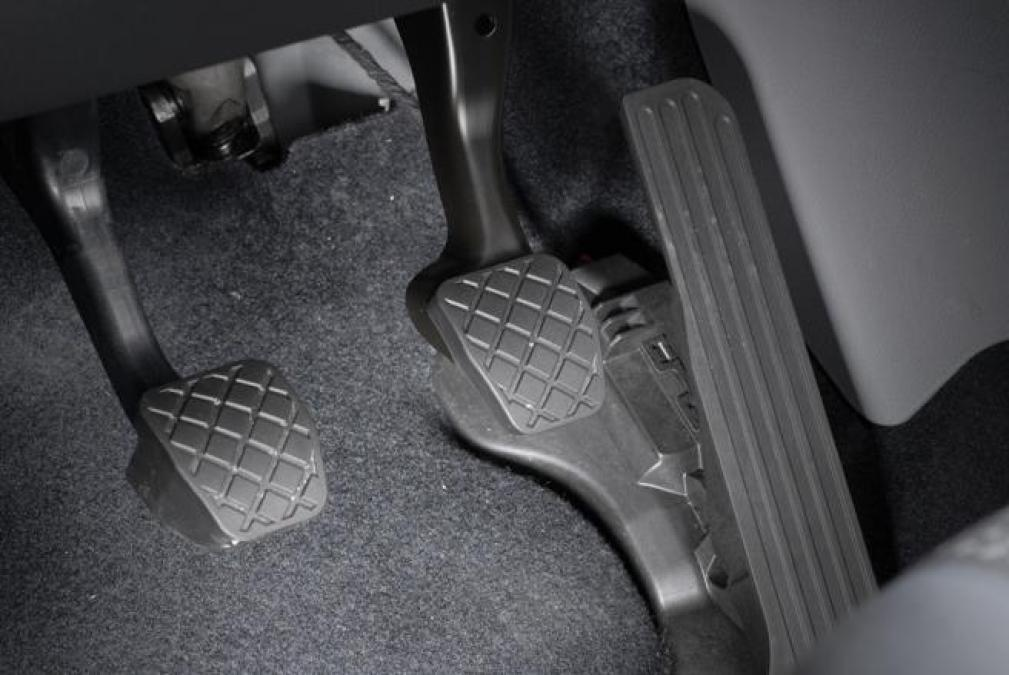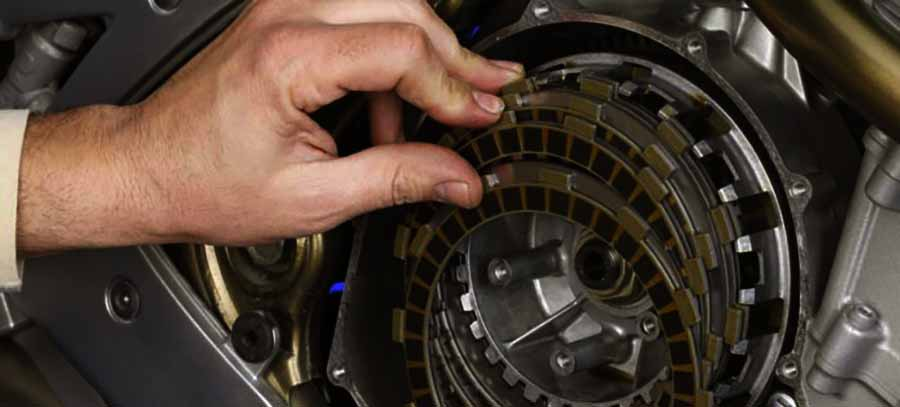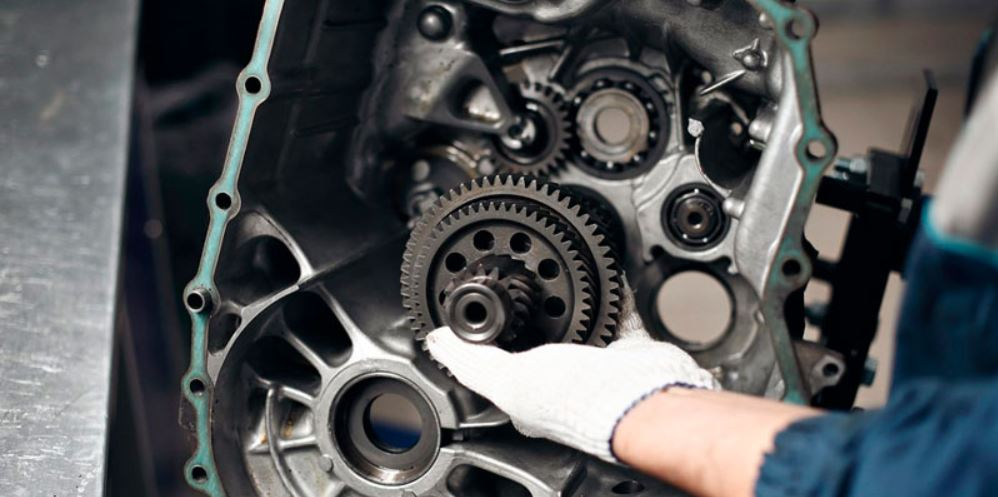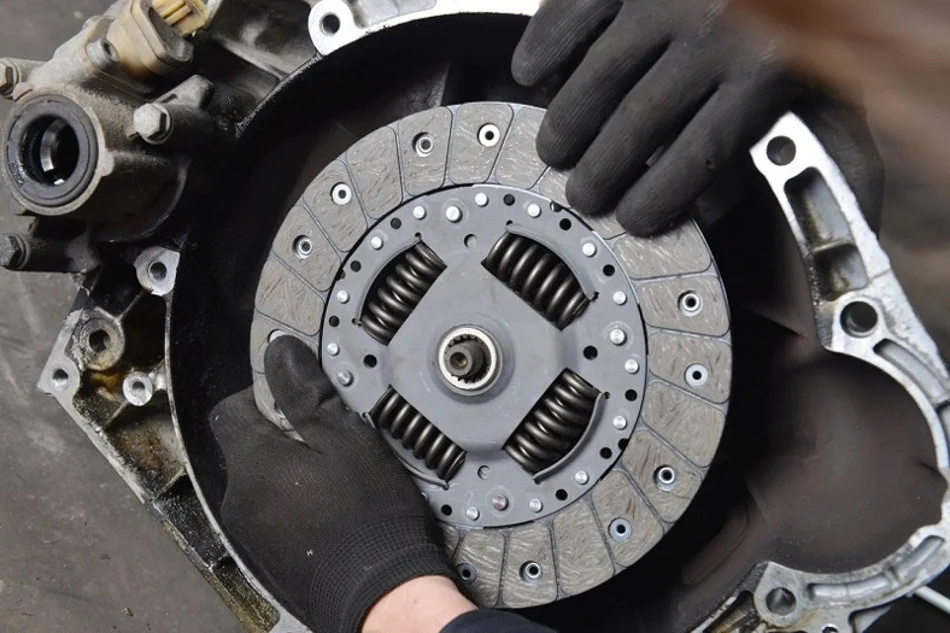
Driving a car with a manual transmission can be a lot of fun. However, drivers with manual transmissions face problems that rarely occur to drivers with an automatic. One of these is the clutch wear. Although all clutches wear out and automatic transmissions use them too, the incidence of wear in the latter is lower. If you have noticed a loud noise when using the clutchthere is definitely a problem, but it could be one of several different things, here we explain it to you.
How does the clutch work?
While manual transmissions have gotten more advanced in the past two decades, they’re still easier to understand than automatics. One of the easiest aspects to understand is how the clutch works. This is all about friction, and it’s also pretty similar to how brakes work.
Basically, when you press the clutch pedal, it engages the clutch to allow you to change gear. The clutch presses against the flywheel, and the friction material in the clutch prevents the transmission from turning. Once you release the pedal, the clutch disengages and the transmission is free to spin with the engine.

It is worth mentioning that operating the clutch requires having working bearings; this applies to both pressing the pedal and releasing it. There are several bearings here as well, including the waste bearing and the pilot bearing.
Why does my car’s clutch make noise when I push it in or out?
There are various reasons why the car clutch makes noise when pressed or releasedHere we explain some of them.
1. Worn waste bearing
If you notice noise from your clutch when you release the pedal, it is most likely the waste bearing or bearing that is failing and will need to be replaced.
2. Pilot or thrust bearing worn
Meanwhile, if you notice noise when you depress the clutch pedal, the most likely culprit is the thrust bearing, in which case you’ll need to replace that as well.

3. Clutch worn
It is also possible that the clutch is worn. These are high wear components and need to be replaced regularly. However, the frequency of replacement will depend on your driving style and habits. When replacing the clutch, it may also be necessary to repair the flywheel.
IT MAY INTEREST YOU:
- What is the clutch, brake and accelerator of a car
- What happens if the clutch of the car in gear breaks?
4. Worn release bearing
Another possible cause of noise when pressing the clutch pedal is the release bearing. If it is noisy, then the bearing is failing and will need to be replaced.
5. Collar problems
If you hear an increasing noise when you slowly depress the pedal, the problem is most likely with the collar. You may also hear it when driving at low speeds or parking in reverse.
6. Clutch fork ball joint wear
If you hear a squealing noise when you hold down the clutch, it may be a creaking noise and it may have to do with a worn ball joint on the clutch fork. On the other hand, if the sound is more like that of a cricket, the thrust bearing is wearing out.

Now, if you hear a noise in neutral, it is also related to the clutch fork. This generally disappears when you slowly press the clutch pedal without accelerating.
7. Worn input bearing
Finally, if the noise occurs when the vehicle is in neutral and you are not using the clutch, the most likely cause is the input bearing, which is located inside the transmission. Likewise, it must be replaced.
What to do if I hear noise in the clutch?
If you hear noise when you press or release the clutch, you should take your car to a mechanical workshop. In that case, a professional will inspect the operation of the clutch and transmission and verify the problem. The mechanic will then provide a detailed inspection report that includes the extent and cost of any necessary repairs.
Thus, one of the mechanics will inspect the clutch operation to check for noise and determine the correct course of action. A test drive may be necessary to recreate the noise. Once the mechanic has determined the cause of the problem, he will be able to solve your problem.

If your clutch is noisy during use, it’s more than just a nuisance. It is a sign that something is wrong. The most common problems to fit these symptoms are bad bearings or bearings (input, pull and loose), but a worn clutch will also cause similar problems. We recommend that you pay attention to this to prevent worse problems.
Font: Your Mechanic Y the vanguard
